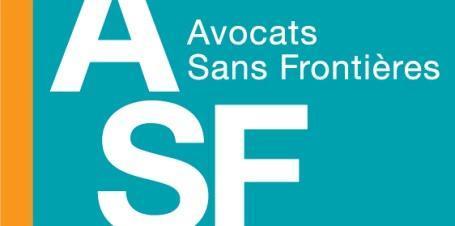

ASFISLOOKINGFORACONSULTANTFORTHEEXTERNALEVALUATION OFTHEPROJECT
“FROMACCESSTOEQUALITY:EMPOWERINGWOMENTOACCESSJUSTICE INUGANDA”
Project FromAccesstoEquality:Empoweringwomentoaccessjusticein Uganda(FATE).
Objectiveof the assignment ToconductafinalevaluationoftheFATEproject
Profileof the consultant
Theconsultantorleadconsultantshouldhavethefollowing academicqualifications,professionalexperienceandskills:
AcademicQualifications
Master’sdegreeinlaw,statistics,developmentstudiesMonitoring andEvaluation,socialsciences,internationaldevelopment, politicalsciencesand/orhumanrightsoranyrelevantfield.
Professionalexperience
1.Extensiveexperienceworkingonrights-basedprogramming andaccesstojusticeprojects,specificallywithinthecontext ofUganda.
2.Aminimumof7years'ofworkingexperienceinproject evaluation,preferablyintheaccesstojusticesector.
3.Provenfamiliaritywithcontextualknowledgeof,and practicalexperienceworkinginUganda.Thestrong emphasison"experienceworkingonrights-based programmingandaccesstojusticeprojectsinthecontext ofUganda"and"familiarity,contextualknowledgeofand experienceworkinginUganda”indicatesthatASFprioritizes thematicandlocalexpertiseovergenericevaluationskills. Thissuggeststhatthequalityoftheevaluationwillheavily
AvocatsSansFrontières|Uganda
relyontheconsultant'sabilitytounderstandthenuancesof thelocaljusticesystemandgenderdynamics,ensuringthat findingsandrecommendationsarepracticaland contextuallyrelevant.
SpecificSkills
•Excellentinterpersonalskillsandaprovenabilityto multitaskandworkeffectivelyundertightdeadlines.
•ProficiencyinEnglishisMandatory.
•Knowledgeoflocallanguagesspokenwithinthetarget projectareaswillbeconsideredacomparativeadvantage.
Availability35workingdaysbetweenAugustandSeptember,2025
ASFContact and deadline
ApplicationProcessandSubmissionRequirements
Thissectionprovidesdetailedinstructionsforinterested consultantsonhowtoapplyforthisevaluationassignment.
ApplicationSubmission:Thiscallforapplicationsisopentoboth nationalandinternationalserviceproviders.Applicantsare requiredtosubmittheirtechnicalandfinancialproposalsvia email.
•SubmissionDeadline:Applicationsmustbesubmittedby 5:00p.m.on31stJuly2025
•EmailAddress:Alldocumentsshouldbesenttoougjob@asf.be.
•SubjectLine:Theemailsubjectlinemustclearlystate: "Consultancy–FATEProjectFinalEvaluation".
RequiredDocumentsforSubmission
Interestedconsultantsmustsubmitthefollowingdocumentsas partoftheirapplication:
•CoverLetter:Aconcisecoverletterexpressinginterestin theconsultancyandhighlightingrelevantqualifications.
•CurriculumVitae(CV):AdetailedCVdemonstrating
relevantskillsandexperience,includingthenamesand contactdetailsofatleasttwo(2)professionalreferences, preferablyfromorganizationsforwhichtheconsultanthas conductedsimilartypesofwork.
•IndicativeBudget:Adetailedindicativebudgetfor consultantfees,abudgetforproposedactivities,the numberofdaysallocatedforeach,andthedailyrate.All feesshouldbeinclusiveofallapplicabletaxesasperthe IncomeTaxAct,Cap340andquotedinUgandanShillings (UGX).
•TechnicalProposal:Acomprehensivetechnicalproposal outliningtheconsultant'sunderstandingoftheTermsof Reference,proposedmethodology,workplan,andapproach toaddressingtheevaluationquestions.
•SampleofSimilarWork:Asampleofsimilarevaluation workpreviouslyconductedbytheconsultant(optional).
•DeclarationofAvailability:Acleardeclarationconfirming availabilitytoundertaketheassignmentbetweenAugust andSeptember2025.
1.Introduction
ThisdocumentoutlinestheTermsofReference(ToR)forthefinalevaluationofthe "FromAccesstoEquality:EmpoweringwomentoaccessjusticeinUganda" (FATE)project.Theprojectgoalsoughttoempowerwomenandgirlstopursue justiceinanenvironmentthatservestheirneeds.
Thisevaluationseekstoprovideacomprehensiveassessmentoftheproject's performance,drawingoninternationalbestpracticesindevelopmentevaluation, andtogeneratecriticalinsightsforfutureprogramming.Theevaluationwillbe implementedundertheoverallsupervisionofAvocatsSansFrontières(ASF).
1.1ProjectBackground
The"FromAccessToEquality:EmpoweringWomentoAccessJusticeinUganda" (FATE)projectisafour-yearprojectimplementedfrom2021to2025.Itwasa collaborativeeffortundertakenbyaconsortiumofpartnerscomprisingAvocats SansFrontières(ASF),UgandaWomen’sNetwork(UWONET),BarefootLaw(BFL),
andPenalReformInternational(PRI).Theprojectreceivesfundingsupportfrom theKingdomoftheNetherlands.
ThegeographicalscopeoftheFATEprojectencompasseselevendistrictsacross Uganda:Gulu,Lamwo,Hoima,Masindi,Napak,Moroto,Mbale,Soroti,Jinja, Namutumba,andKamuli.Theoverarchinggoaloftheprojectistoempowerwomen andgirlstopursuejusticeinanenvironmentthatservestheirneeds.Toachieve this,theprojectdefinedthefollowingspecificobjectivesandexpectedresults:
•SpecificObjective1:Womenareinapositiontodemandjustice.
•ExpectedResult1.1:Womenarelegallyempoweredtoact.
•SpecificObjective2:Decision-makersmobilizetomakewomenandgirls’ rightseffective.
•ExpectedResult21:Legalaidandprotectionservicesareimproved andtailoredtorespondtowomenandgirls’accesstojusticeneeds.
•ExpectedResult2.2:Institutionsareaccountableforprotectingand promotingwomenandgirls’rights.
Themulti-partnerconsortiumstructureoftheFATEproject,involvingASF,UWONET, BFL,andPRI,presentedbothastrategicadvantageandapotentialcomplexityfor evaluation.Thiscollaborativeframeworkimpliesthattheevaluationmustnotonly assesstheindividualcontributionsofeachpartnerbutalsocriticallyexaminethe efficacyoftheconsortiummodelitself.Thisincludesevaluatinghoweffectively partnerscollaborated,leveragedtheirrespectivestrengths,andnavigatedany coordinationchallenges.Suchanassessmentiscrucialforderivingvaluablelessons concerningthedesignandimplementationoffuturemulti-partnerinitiatives.
Furthermore,theproject'sexplicitfocuson"empoweringwomenandgirls"and enhancing"accesstojustice"directlyalignswithbroaderglobaldevelopment agendas,particularlytheSustainableDevelopmentGoals(SDGs),specificallySDG 5(GenderEquality)andSDG16(Peace,Justice,andStrongInstitutions)Whilenot adirectrequirementofthisToR,acknowledgingthisbroaderalignmentenhances theproject'srelevanceandpotentialimpact,demonstratingitscontributiontowider developmentobjectivesforboththefundingpartnerandASF.
ThisprojectcontributesdirectlytotheSustainableDevelopmentGoals5(Achieve genderequalityandempowerallwomenandgirls),10(Reduceinequalitywithin andamongcountries)and16(Promotepeacefulandinclusivesocietiesfor
sustainabledevelopment,provideaccesstojusticeforallandbuildeffective, accountableandinclusiveinstitutionsatalllevels).
TheprojectcontributestotheimplementationoftheLilongweDeclarationon accessinglegalaidincriminaljusticesystems(2004)insofarasitsfirstlegalaid servicesareaccessibleforall,butspecificallytailoredtomeetwomen’sneeds.The projectalsocontributestotheimplementationoftheBangkokrulesonthe treatmentofwomenprisoners(2010).
Table:FATEProjectOverview
Feature Description
ProjectNameFromAccesstoEquality:Empoweringwomentoaccess justiceinUganda(FATE)
OverallGoalToempowerwomenandgirlstopursuejusticeinan environmentthatservestheirneeds
Specific Objectives
Expected
Results
1Womenareinapositiontodemandjustice
2Decision-makersmobilizetomakewomenand girls’rightseffective
1.1Womenarelegallyempoweredtoact
2.1Legalaidandprotectionservicesareimprovedand tailoredtorespondtowomenandgirls’accesstojustice needs
2.2Institutionsareaccountableforprotectingand promotingwomenandgirls’rights
Consortium Partners AvocatsSansFrontières(ASF),UgandaWomen’sNetwork (UWONET),BarefootLaw(BFL),PenalReformInternational (PRI)
Funding Partner KingdomoftheNetherlands
Project Duration 4years(2021-2025)
Geographical Scope
Gulu,Lamwo,Hoima,Masindi,Napak,Moroto,Mbale, Soroti,Jinja,Namutumba,KamulidistrictsinUganda
1.2OverviewofConsortiumpartners
AvocatsSansFrontières(ASF)
AvocatsSansFrontières(ASF)isanindependentinternationalnongovernmental organizationestablishedinBelgiumin1992.Itscoremissionistopromotethe establishmentofinstitutionsandmechanismsthatfacilitateaccesstoindependent andimpartialjustice,therebyguaranteeingtheprotectionoffundamentalrights, includingcivil,political,economic,andsocialrights,aswellastherighttoafair trial.
Forovertwodecades,ASFhasbeenactivelyengagedinimplementingprograms designedtoimproveaccesstojusticeforvulnerablepopulations,particularlyin fragilestatesorcontextsundergoingtransition.Itsoperationalpresencespans variouscountries,includingtheCentralAfricanRepublic,Niger,theDemocratic RepublicofCongo,Tunisia,Morocco,Kenya,andnotably,Uganda.Thisextensive experienceincomplexandoftenpoliticallysensitivejusticeenvironments underscoresASF'sdeepunderstandingofthesystemicchallengesinherentinsuch contexts.Consequently,anevaluationcommissionedbyASFmustextendbeyond merelyassessingprojectoutputs;itmustalsoexaminetheunderlyingsystemic issuesandtheproject'sstrategicengagementwithorinfluenceonthesebroader factors.Thisapproachenrichesthescopeof"lessonslearned"byincorporating strategicandpoliticalconsiderationsrelevanttothesustainabilityofjusticesector reforms.
PenalReformInternational(PRI)
PRIhasover30years’experienceincriminaljusticereformandhasworkedin Ugandasince1990.Ensuringgendersensitivityisakeycomponentoftheirwork. PRIhasasignificantpartintheimplementationoftheBangkokRulesforthe treatmentofwomenoffendersandhaveoverthelastfouryearsprovidedboth technicalandtrainingsupporttolawenforcementonthemanagementof vulnerableoffenders(womenandchildren)inUganda.PRIledthecapacitybuilding engagementwithJLOSinstitutions,inordertofosterpositiveinstitutionalreform.
BarefootLaw(BFL)
BFLisattheforefrontofinnovationsinaccesstojustice–makingaccesstojustice andlawreadilyavailabletovulnerablecommunities.Throughtheinnovativeuseof digitaltechnologies,itempowerspeopletodeveloplegalsolutionstotheirproblems. DrawingfromasuccessfulpilotimplementedwithASFinAcholi,BFLdeveloped digitallegalaidservicesforwomenvictimsofGBVs.Thedigitalservicesincludea SMSandInteractiveVoiceResponse(IVR)platform,whichnotonlyovercomesthe barriersinphysicalreachtoremoteareas,butalsosolveslanguageissuesand allowswomentoaccessinformationin“safespaces”thatisoutsidetheinfluenceof men.
TheUgandaWomen’sNetwork(UWONET)
UWONETisanadvocacyorganizationwithavastmembershipof24established NationalWomen’sRightsOrganizations,andDistrictWomen’sNetworksinmore than80districtsacrossUganda.HingingonhersubstantiveexperienceinGBV programmingspanning28years,andnation-widenetworkofwomenorganizations, UWONETworkedacrosstheproject.UWONET’songoinggenderassessmentofthe barrierstowomenandgirl’saccesstojusticewillstrengthentheinterventioninall itsaspects.Inparticular,UWONETledprovisionofGBVsheltersandessential servicesforsurvivors;institutionalstrengtheningforeffectiveCSOGBVresponse andmanagement;anddialogueswithcultural,communityandreligiousleadersand adjudicatorsofinformaljusticesystemsforgenderresponsiveADR.
1.3AbouttheFATEProject
ContextoftheEvaluation
ThisdocumentservesastheTermsofReferenceforthefinalevaluationoftheFATE project,commissionedbyAvocatsSansFrontières.Theevaluationmissionwillbe conductedinthespecificgeographicalareaswheretheprojectwasimplemented andwillassesstheperformanceoftheprojectandcaptureproject achievements/results,challenges,andbestpractices.Itoffersalearningaspectfor allstakeholdersidentifyingkeylessonslearned,challenges,unintendedeffectsand theflexibilityoftheprogrammetoadaptandrespondtothechangesand sustainabilityoftheprojectinterventions.
Asafinalevaluation,itspurposeextendsbeyondongoingmonitoringtoencompass asummativejudgmentoftheproject'soverallperformanceandachievements.This impliesastrongemphasisonaccountabilityforresults,coupledwithaforwardlookingperspectiveaimedatinformingfuturelearningandstrategicdecisionsfor ASFanditspartners.Theevaluationisthereforeexpectedtoproviderobust conclusionsthatcanguidethedesignandimplementationofsubsequent interventions.
2.PurposeandObjectivesoftheEvaluation
Thissectionclearlyarticulatestherationaleforconductingtheevaluationandits intendedoutcomes.
2.1.MainObjective
Themainobjectiveofthisevaluationistoprovideanoverallassessmentofthe FATEprojectbasedontheinternationallyrecognizedOECDDevelopmentAssistance Committee(DAC)criteria:relevance,coherence,effectiveness,efficiency,impact, andsustainability.Theexplicituseofthesecriteriasignalsacommitmentto internationalbestpracticesindevelopmentevaluation.Thisapproachensuresthat
theevaluationfindingswillbecomparabletootherevaluationsutilizingthesewidely acceptedstandards,therebyenhancingtheirutilityforaccountabilitytothefunding partner(theEmbassyoftheKingdomoftheNetherlands)andfororganizational learningwithinASFanditsconsortiumpartners.
2.2.SpecificObjectives
Theevaluationseekstoachievethefollowingspecificobjectives:
1.Assesstheperformanceoftheprojecttowardsachievingtheintended projectobjectives,results,andoutcomesasagreeduponintheproject document.
2.AssesstherelevanceandeffectivenessoftheFATEproject interventionsinenhancingwomenandgirls’abilitytopursuejusticeinan environmentthatservestheirneeds;towardsachievingtheproject outcomes/resultsWhatworked(ordidnotwork)andwhy
3.Identifyandassesscriticallessonslearned,challenges,unintended effectsoftheprojectanddrawrecommendationsforfutureprogrammes.
4.Assesswhethertherisksidentifiedintheprojectwerethemost importantandappropriateones.Weretheriskmanagement strategies/responsesthatwereadoptedbytheprojectadequate?
5.Assessthelikelysustainabilityoftheproject,examiningparticularly fromthebeneficiaries’perspective,howmuchoftheproject’sknowledgeand practicetransfereffortshasbeenlearned,adopted,usedandinstitutionalized bythebeneficiariesandotherstakeholdersandpartners.
Theemphasison"lessonslearnedtoformrecommendationsforfuture programmes"highlightsasignificantlearningagendaforASF.Thisgoesbeyond mereaccountabilityforpastperformance;itrequirestheevaluatortoprovide actionable,forward-lookinginsightsthatcandirectlyinformstrategicplanningand thedesignofsubsequentinterventionsintheaccesstojusticesector,particularly thosefocusedonwomen'sempowerment.Thisnecessitatesadeeperanalytical approachthatnotonlyreportsonwhatwasachievedbutalsoexploreswhycertain outcomesoccurred,identifiestransferableknowledge,andproposesconcrete improvementsforASF,consortiumpartnersandthefundingpartner,theEmbassy oftheKingdomoftheNetherlands.
3.EvaluationCriteriaandKeyQuestions
ThissectionformsthecoreoftheTermsofReference,detailingthespecificareasof inquirythattheevaluationmustaddress,structuredaroundtheOECDDACcriteria. ThesequestionsmaybeadjustedbytheconsultantinclosecooperationwithASF andconsortiumpartners.
3.1.GuidingPrinciplesforApplicationofOECDDACCriteria
TheOECDDACcriteriarelevance,coherence,effectiveness,efficiency,impact,and sustainabilityprovideanormativeframeworkfordeterminingthemeritorworthof adevelopmentintervention,whetheritbeapolicy,strategy,program,project,or activity.Thesecriteriaarenotintendedtobeappliedmechanistically;rather,their applicationshouldbethoughtfulandcontextualized.
PrincipleOnedictatesthatthecriteriashouldbeappliedthoughtfullytosupport high-quality,usefulevaluation.Thisrequiresconsideringthespecificcontextofthe individualevaluation,theinterventionbeingevaluated,andthestakeholders involved.Theinterpretationandanalysisofthecriteriashouldbeinformedbythe specificevaluationquestionsandtheintendeduseoftheevaluationfindings.For theFATEproject,thismeanstheevaluatormustconsidertheuniquesocio-cultural andpoliticallandscapeofUganda,especiallyconcerningwomen'saccesstojustice, ratherthanemployingagenerictemplate.Thisnecessitatesanuanced interpretationoffindings,oftenrequiringqualitativedatatocapturethe complexitiesoflocalpowerdynamics,culturalnorms,andspecificbarriersfacedby women.
PrincipleTwostipulatesthattheuseofthecriteriadependsonthepurposeofthe evaluation.Theyshouldbecoveredaccordingtotheneedsofrelevantstakeholders andthespecificcontextoftheevaluation.Thisreinforcestheneedforaflexibleyet rigorousapproach,ensuringthattheevaluationremainspertinenttothepartners’ strategiclearningandaccountabilityneeds.
3.2.Relevance:Istheinterventiondoingtherightthings?
Definition:Relevanceassessestheextenttowhichtheintervention'sobjectives anddesignrespondtotheneeds,policies,andprioritiesofbeneficiaries,global frameworks,nationalcontexts,andpartnerinstitutions,andwhetherthisalignment continuestoholdtrueifcircumstanceschange.
Importance:Evaluatingrelevancehelpsstakeholdersunderstandifanintervention isappropriatelydesignedandexecutedtoaddresstheidentifiedproblems.It assesseshowclearlyanintervention'sgoalsandimplementationalignwith
beneficiaryandstakeholderneedsandtheunderlyingprioritiesoftheintervention. Relevanceisoftenconsideredaprerequisiteforachievingotherevaluationcriteria, asaprojectthatisnotrelevanttoactualneedsisunlikelytobeeffectiveorhavea lastingimpact.Thisimpliesacausallink:ifthefoundationofaproject(its relevance)isweak,thenevenefficientimplementationmaynotleadtodesired outcomesorsustainablebenefits.Therefore,arigorousassessmentoftheinitial problemanalysisandtheproject'songoingadaptationtowomen'sevolvingjustice needsisfundamentaltotheentireevaluation.
KeyChallenges:Asignificantchallengeinevaluatingrelevanceisnavigatingthe multiple,potentiallycompetingprioritiesandneedsamongvariousnationaland internationalstakeholders.
KeyEvaluationQuestionsforFATE:
•TowhatextentweretheFATEproject'sobjectivesanddesignaligned withtheidentifiedneedsandprioritiesofwomenandgirlsinUganda concerningaccesstojustice?
•Howwelldidtheproject'sdesignalignwithnationalpoliciesandlegal frameworksrelatedtogenderequality,humanrights,andaccesstojusticein Uganda?
•Didtheprojectadequatelyrespondtotheevolvingcontextandneeds ofwomenandgirlsthroughoutitsimplementation(2021-2025),particularly inthetargetdistricts?
•Towhatextentdidtheproject'sapproachto"legalempowerment"and "improvinglegalaidandprotectionservices"remainpertinentandvaluable tothetargetbeneficiaries?
•Howwelldidtheprojectaddressthespecificbarriers(e.g.,cultural, economic,social,security-related)thatwomenandgirlsfaceinaccessing justiceinUganda?
3.3.Coherence:Howwelldoestheinterventionfit?
Definition:Coherenceevaluatesthecompatibilityoftheinterventionwithother interventionswithinacountry,sector,orinstitution.Itexaminestheconsistency andsynergisticqualitiesofanintervention,checkingforharmonization,avoidance ofduplication,andcontradictionswithotheractionsinthesamecontext.
Importance:Coherenceensuresthatinterventionsarenotisolatedeffortsbutare effectivelyintegratedintothebroaderdevelopmentalfabric.Thisintegrationcan maximizesynergiesandpreventfragmentedorcounterproductiveefforts.
KeyEvaluationQuestionsforFATE:
•TowhatextentwastheFATEprojectinternallycoherent,ensuring consistencyandsynergyamongtheobjectives,expectedresults,and activitiesimplementedbytheconsortiumpartners(ASF,UWONET,BFL,PRI)? Themulti-partnerconsortiumstructurenecessitatesanexaminationofhow thesefourorganizationscoordinatedtheireffortstoachieveaunifiedand synergisticapproach,ratherthanoperatinginsilos.
Thisaspect directlyinfluencestheproject'soverall efficiencyandeffectiveness.
•HowwelldidtheFATEprojectcomplementoralignwithothernational, regional,orinternationalinitiativesandpoliciesaimedatpromotingaccessto justiceandgenderequalityinUganda?
•Didtheprojecteffectivelyavoidduplicationofeffortswithotheractors workinginthesamegeographicalareasorthematicsectors,andwhere applicable,diditestablisheffectivepartnerships?
•Werethereanyunintendednegativeinteractionsorcontradictions betweentheFATEprojectandotherinterventionsorpoliciesinUganda?
3.4.Effectiveness:Istheinterventionachievingits objectives?
Definition:Effectivenessmeasurestheextenttowhichanintervention'sobjectives havebeenachieved,takingintoconsiderationitsoutputsandoutcomes.This criterionalsoencompassesthetimelinessofimplementationandthepreparedness oftheinterventiontomeetitsobjectives.Asignificantaspectoftherevised definitionincludes"differentialresultsacrossgroups,"encouragingadeeper investigationofexclusionandpowerdynamics.
Importance:Assessingeffectivenessiscrucialfordeterminingtheoverallsuccess ofaninterventioninmeetingitsstatedgoals.
KeyEvaluationQuestionsforFATE:
•TowhatextenthastheFATEprojectachieveditsoverallgoalof empoweringwomenandgirlstopursuejusticeinanenvironmentthatserves theirneeds?
•WhatprogresshasbeenmadetowardsachievingSpecificObjective1: "Womenareinapositiontodemandjustice,"andExpectedResult1.1: "Womenarelegallyempoweredtoact"?
•WhatprogresshasbeenmadetowardsachievingSpecificObjective2: "Decision-makersmobilizetomakewomenandgirls’rightseffective,"and ExpectedResults2.1("Legalaidandprotectionservicesareimprovedand tailoredtorespondtowomenandgirls’accesstojusticeneeds")and2.2
("Institutionsareaccountableforprotectingandpromotingwomenandgirls’ rights")?
•Weretheprojectactivitiesimplementedinatimelymanner,andwas theprojectsufficientlypreparedandequippedtomeetitsobjectives?
•Whatwerethedifferentialresultsoftheprojectacrossvariousgroups ofwomenandgirls(e.g.,byage,socio-economicstatus,geographical location,specificvulnerabilities)?Werethereanyunintendednegative consequencesforspecificgroups?2Foragender-focusedprojectlikeFATE, thisisparamount;theevaluationmustmovebeyondaggregatesuccessrates tounderstandwhobenefited,how,andwhy,andcritically,whomighthave beenleftbehindornegativelyaffected,necessitatingdisaggregateddataand anuancedanalysisofequity.
•Whatweretheenablingfactorsandconstraintsthatinfluencedthe project’seffectivenessinachievingitsobjectives?
3.5.Efficiency:Howwellareresourcesbeingused?
Definition:Efficiencyexaminesthedegreetowhichaninterventiondeliversresults inacost-effectiveandtimelymanner.Itinvolvescomparingtheoutputs(both qualitativeandquantitative)totheinputsusedandassessingwhetherthemost efficientprocesseswereemployedtoachievethedesiredoutcomes,oftenby comparingdifferentapproaches.
Considerations:Theassessmentofefficiencyextendsbeyondmerefinancial accountingtoincludetheinfluenceofpoliticalfactors,theoriginofinputs(e.g., localversusimportedgoods),andacomprehensiveevaluationofcostsacross sectors,encompassinglocalandinternationalinputs,transportationexpenses,and staffcostsInsomecases,expertiseineconomicsoraccountingmayberequired foraproperevaluationofefficiency.FortheFATEproject,thisimpliesassessing whetherstrategicchoices,suchasrelianceonlocalversusinternationalstaffor materials,andengagementwithlocalgovernmentstructures,contributedtoor hinderedefficiency,ratherthansolelyfocusingonbudgetadherence.Utilizinglocal resourcesandexpertise,forinstance,cansignificantlyenhanceefficiencyby reducingoverheads,buildinglocalcapacity,andensuringculturalappropriateness, whichcanleadtobetterlong-termoutcomes.
KeyEvaluationQuestionsforFATE:
•Towhatextentweretheproject'sresources(financial,human, material)utilizedeconomicallyandefficientlytoachievethestatedobjectives andresults?
•Couldthesameresultshavebeenachievedwithfewerresources,or couldgreaterresultshavebeenachievedwiththesameresources?
•Wereprojectactivitiesimplementedinacost-effectiveandtimely manner?
•Whatfactors,includingpoliticalconsiderationsorprocurement practices(e.g.,localsourcingversusimports),influencedtheproject's efficiency?
•Howeffectivelydidtheconsortiummanagefinancial resourcesacrosspartners?
3.6.Impact:Whatdifferencedoestheinterventionmake?
Definition:Impactreferstoalleffectsinthelongerterm.Itexaminestheultimate significanceofanintervention,includingitsvaluetothoseaffected.Thisincludes assessingpositiveandnegative,directandindirecteffectsonbeneficiaries,impacts oninstitutionalcapacitywithinthehostcountry,andbroaderindirectorsecondroundeffects.
Importance:Thereisagrowingemphasisonevaluatingtheactualimpactsof projects,ratherthansolelyfocusingonhowwelltheyachievedtheirimmediate goals.
KeyChallenges:Designingfeasibledatacollectionstrategiesforimpact, accuratelyidentifyingbeneficiaries,andcollectingdataatvariousstagesofthe projectorprogramcyclecanbechallenging.Furthermore,forprojectsaddressing sensitiveissuessuchaswomen'saccesstojustice,unintendednegativeimpacts (e.g.,increasedriskforbeneficiaries,backlashfromtraditionalauthorities)area realpossibilityandmustbeactivelysoughtoutandanalyzed.Complexsocial interventionsoftenhaverippleeffectsbeyondtheirimmediateobjectives,requiring evaluatorstoproactivelyinvestigatetheseintricate,sometimeshidden,outcomes toprovideacompletepictureoftheproject'sinfluence
KeyEvaluationQuestionsforFATE:
•Whatsignificantpositiveandnegativechanges(intendedand unintended)hastheFATEprojectcontributedtointhelivesofwomenand girlsregardingtheiraccesstojusticeandempowerment?
•Towhatextenthastheprojectinfluencedtheinstitutionalcapacityof justiceactors(e.g.,police,judiciary,legalaidproviders,localgovernment)to protectandpromotewomenandgirls'rights?
•Whatbroader,indirect,orsecond-roundeffectshastheprojecthadon thejusticesectororgenderequalitylandscapeinUganda?
•Howhastheprojectcontributedtochangesinperceptions,attitudes, orbehaviorsregardingwomen'saccesstojusticewithincommunitiesand institutions?
•Arethereanyindicationsofsystemicchangesinthejustice environmentthatcanbeattributed,evenpartially,totheFATEproject?
3.7.Sustainability:Willthebenefitslast?
Definition:Sustainabilityfocusesonthedurabilityofbenefitsderivedfroman intervention.Itassessesthelikelihoodthatthepositivechangesandbenefitswill continueafterthemajordevelopmentassistancehasconcluded.
Importance:Sustainabilityiscrucialforensuringthelong-termpositiveeffectsof developmentinterventions
KeyEvaluationQuestionsforFATE:
•Towhatextentarethebenefitsandpositivechangesachievedbythe FATEprojectlikelytocontinueaftertheproject'scompletion?
•Whatisthelevelofownershipandcommitmentfromlocal stakeholders,includinggovernmentinstitutions,civilsocietyorganizations, andcommunities,tosustaintheproject'sresultsandactivities?Sustainability isnotmerelyaboutfinancialviabilitybutalsoaboutinstitutionalcapacityand localownership.ForFATE,thismeansassessingwhetherthe"empowerment" ofwomenandthe"accountability"ofinstitutionshavebeentrulyinternalized andareself-sustaining,ratherthandependentonexternalprojectfundingor personnel.
•Arethereadequatefinancial,institutional,andtechnicalcapacities withinpartnerorganizationsandlocalstructurestomaintaintheservicesand empowermentinitiativesinitiatedbytheproject?
•Howresilientarethechangescontributedtobytheprojectintheface ofemergingsocial,economic,orpoliticalchangesinUganda?
•Whatstrategieswereputinplacebytheprojecttoensurethelongtermsustainabilityofresults,andhoweffectivewerethey?
3.8.LessonsLearnedandRecommendations
Importance:Theidentificationof"lessonslearned"isexplicitlyrequestedforthis evaluationandrepresentsacriticalcomponentforinformingfutureprogramming. Thisnecessitatesadeepdiveintowhycertainoutcomesoccurred,beyondjustwhat happened.Thisrequiresaqualitativeandanalyticalapproachtoidentifycausal pathways,enablingfactors,andbarriers,whichiscrucialforgenuineorganizational learning.
KeyEvaluationQuestionsforFATE:
•Whatwerethekeygoodpracticesandsuccessfulapproaches employedbytheFATEprojectthatcouldbereplicatedorscaledupinfuture accesstojusticeorwomen'sempowermentinitiatives?
•Whatsignificantchallengeswereencounteredduringtheproject implementation,andhowweretheyaddressed(ornotaddressed)?Whatcan belearnedfromthesechallenges?
•Whatwerethemainenablingandconstrainingfactors(e.g., contextual,political,institutional,partnerdynamics)thatinfluencedthe project'sperformanceacrossallOECDDACcriteria?
•Basedonthefindings,whatconcrete,actionablerecommendationscan beprovidedforASFanditspartnerstoimprovethedesign,implementation, andsustainabilityoffutureprogramsintheaccesstojusticesectorin Ugandaandbeyond?
•Whatspecificrecommendationscanbemaderegardingtheconsortium modelforfutureprojects?
4.MethodologyandApproach
Thissectionoutlinestheexpectedmethodologicalframeworkfortheevaluation, emphasizingacollaborativeandrobustapproach.
4.1.OverallApproach
Theevaluationwillfollowamixed-methodapproach,includingthefollowing:
a)Elaborationofthemethodologyfortheevaluationpresentedinan inceptionreport.
b)Deskreviewofallrelevantprogramdocumentation,suchasproject document,mid-termreview,annualreports,baseline,midlineandendline reports,etc.
c)Undertakefieldworkinprojectinterventionareas,interviewswithkey localstakeholders,suchas(in)directbeneficiaries,(local)government,and projectstaffandconsortiumandimplementingpartners.
d)Stakeholderconsultationsatlocalandnationallevel.
e)Qualitativeandquantitativeanalysisbasedonresultsoftheevaluation activities,includingfieldworkinthetargetedareasSpecificattentionneeds tobegiventoprobingbeyond‘expectedanswers’togettounderlying opinions.
f)Qualitativeanalysistoenabletheformulationofanopiniononthe impactoftheproject.
g)Presentationofthekeyfindingstotheprojectandotherrelevant stakeholdersandlaterEKN.
h)PreparationofadraftevaluationreportforreviewbytheFATE consortium,containingthemission’smainfindingsandrecommendations.
i)Elaborationofthefinalreport,includinganexecutivesummary,and relatedannexes.
j)AnysubsequentadjustmentsrequiredbytheFATEconsortiumand EKN,asneededforfinalapprovalofthereports.
Theevaluatorswilldesignanddecideontheprogramoftheevaluationandselect theprojectconsortiumandimplementingpartners,stakeholders,beneficiaries, projectstaff,interventionareas,governmentagenciesetctobevisited/interviewed. ASFwilloffersupportbasedonthedevelopedprogram,ifrequired.
ThefinalmethodologywillbedeterminedjointlybyASFandtheselected consultancyteamduringtheinceptionphase.Whilethisindicatesacollaborative spirit,italsoplacesasignificantresponsibilityontheconsultanttoproposearobust initialmethodologyintheirtechnicalproposal.Thisproposalshoulddemonstratea clearunderstandingoftheproject'scomplexities,thespecificchallengesofdata collectioninthetargetdistricts,andthenuancesinherentinevaluatinggenderand justiceprograms.
4.2.InceptionPhase
Attheinitialphaseoftheassignment,ASFandtheconsortiumpartners,andthe selectedconsultantwillconveneforaninceptionmeeting.Theprimarypurposesof thismeetingaretovalidatetheproposedscheduleandworkplan,identifyareas wheresupportfromASFandpartnerswillberequired,finalizethedetailed methodology,andagreeonacomprehensivelistofprojectdocumentsavailable andnecessaryforthesuccessfulexecutionoftheevaluation.
Followingthismeeting,theconsultantisrequiredtosubmitacomprehensive inceptionreport.Thisreportservesastheblueprintfortheentireevaluationand mustoutlinethefollowingkeyelements:
•Theselectedmethodologyandaclearjustificationforitschoicein relationtothespecificevaluationmissionandtheFATEproject'scontext.
•Adetailedlistofkeydocumentstobereviewedfortheevaluation, includingprojectproposals,monitoringreports,andotherrelevant programmaticdocuments.
•Thespecifictoolsdesignedfordatacollection(e.g.,survey questionnaires,interviewguides,focusgroupdiscussionprotocols).
•Thecriteriaforselectingrespondentsandaclearexplanationfortheir selection,ensuringrepresentationacrossvariousstakeholdergroups.
•Themethodfordataanalysis,detailinghowquantitativeand qualitativedatawillbeprocessedandtriangulatedtoanswertheevaluation questions.
•Adetailedworkplanfortheentireevaluation,includingspecific activities,timelines,andresponsibilities.
ThedetailedrequirementsfortheinceptionreportunderscoreASF'scommitmentto awell-plannedandtransparentevaluationprocess.Thisreportfunctionsasa criticalcheckpoint,ensuringcompletealignmentbetweentheconsultant'sproposed approachandASF'sexpectationsbeforesignificantfieldworkcommences.
4.3.DataCollection
TheconsortiumpartnersaswellastheimplementingpartnersoftheFATEproject arecommittedtomakingthemselvesavailablethroughoutthedurationofthe missiontoassisttheconsultantincollectinginformationrelevanttotheevaluation.
Theconsultantwillhaveaccesstoarangeofprogrammaticdocuments,including theoriginalTermsofReferencefortheproject,annualandotherprojectreports, anddatacollectedaspartoftheproject'smonitoringandevaluationmechanism.
Inadditiontodocumentreview,theconsultantwillbeexpectedtoconduct consultationswithadiverserangeofstakeholders.Theseincludeconsortiumand implementingpartners,representativesofcivilsocietyorganizations,communitybasedorganizations,localgovernmentofficials,andothercommunity representativesactivelyinvolvedintheprojectareas.
Acriticalaspectofthedatacollectionphaseinvolvesaddressingpotentialdatagaps. Ininstanceswhererelevantdataisabsent,theconsultantisexpectedto proactivelyidentifyalternativesourcesofverificationandrecommendconcrete measurestoASFformakingsuchdataavailable.1Thisexplicitinstructionhighlights apotentialchallengewithdataavailabilityorqualityandrequirestheconsultantto beresourcefulandproactiveinidentifyingalternativedatasourcesormethods, ratherthansimplystatinglimitations.
4.4.DataAnalysis
Theinceptionreportwilldetailthespecificmethodsfordataanalysis.Theanalytical approachmustberobustenoughtothoroughlyaddressallOECDDACcriteria, includingtheinherentnuancesofgenderdynamicsandaccesstojusticeissues withintheUgandancontext.Thisrequiresasystematicapproachtotriangulate findingsfromvariousdatasourcestoensurevalidityandreliabilityofconclusions.
5.DeliverablesandReportingRequirements
Thissectionspecifiesthetangibleoutputsexpectedfromtheexternalconsultant throughouttheevaluationprocess.
5.1.ListofExpectedDeliverables
ASFexpectsthefollowingdeliverablesfromtheselectedconsultant:
•InceptionReport:Acomprehensivereportdetailingtheliterature review,refinedmethodology,datacollectiontools,andarevisedtimelinefor theevaluation.
•AllData:Submissionofallrawandprocesseddatacollectedduring theevaluation,includingcopiesofthefinaldatasetsandhardcopiesofall datacollectioninstrumentsused.Therequirementtosubmitalldata underscoresASF'scommitmenttodatatransparency,ownership,andthe potentialforfutureinternalanalysisorverification.
•DraftEvaluationReport:Apreliminaryversionoftheevaluation reportsubmittedforreviewandfeedbackbyASFanditsconsortiumpartners.
•FinalEvaluationReport:Theconclusiveevaluationreport, incorporatingfeedbackfromASFandpartners,presentingthefindings, conclusions,andrecommendations.
•PresentationofFindings:Apresentationsummarizingthekey findings,conclusions,andrecommendationstoASFanditspartners. Alldeliverablesrelatedtotheevaluationmissionmustbehandedoverandfinalized beforeSeptember12th,2025.
Table:EvaluationDeliverablesandTimeline
DeliverableDescription
Withinfirst7-10 workingdaysof assignment
Data Submission Copiesoffinal datasetsandhard copiesofcollection instruments Integrated throughoutdata collection
Uponcompletionof fieldwork
Draft Evaluation Report
Forreviewby ASF andpartners Tobeproposed byconsultant
Final Evaluation Report Incorporating feedback Tobeproposed byconsultant
Presentation ofFindings
ToASFandpartnersTobeproposed byconsultant
5.2.ReportingLanguageandFormat
By31stAugust, 2025
Before12th September,2025
Before12th September, 2025
AllreportsandpresentationsmustbepreparedandsubmittedinEnglish.Thefinal evaluationreportshouldbeconcise,clear,andwell-structured,adheringto professionalreportingstandardstypicallyobservedininternationaldevelopment evaluations.
6.Timelineandbudget
Theentireevaluationassignmentisexpectedtospanaperiodof35workingdays. ThisworkistobeconductedbetweenAugustandSeptember2025.Alldeliverables mustbefinalizedandsubmittedbeforeSeptember12th,2025.
Atleast65%oftherequiredpersons-dayswillbeallocatedforfieldwork.The budgetforthewholeassignment(inclusiveofconsultantfees,allproposedactivity feesandanyotherlogisticalfeesrelatedtotheassignment)willrangebetween 28,000and40,000euros(IncludingVATifapplicable).
7.ConditionsoftheMission
Paymentfortheconsultancyservicesshallbemadebasedonthesuccessful completionandacceptanceofdeliverables,inaccordancewithASF’sestablished consultancyrateswhichwillinformthefinalagreement.
